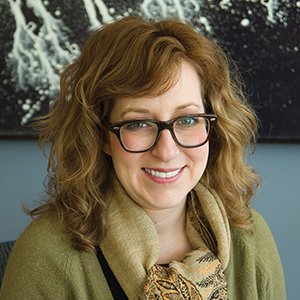Birds of a feather in Philly
If you’re heading to Philadelphia in April for the 2022 American Society for Biochemistry and Molecular Biology Annual Meeting, you’ll need to be ready to hit the ground running. The first day will include a slew of events designed to help attendees with similar research and pedagogical interests make connections — connections the meeting organizers hope will persist long after.
The interest group networking events will start Saturday, April 2. There will be 11 of them (see box), and some will run concurrently.
Daniel Raben of the Johns Hopkins University School of Medicine serves as chair of the ASBMB Meetings Committee and conceived of the interest groups to “incorporate a broader swath of our community.” They first launched at the 2021 meeting, which was held virtually.

ASBMB 2022 interest groups
Chemical biology
Organizers: Minkui Luo, Memorial Sloan Kettering Cancer Center, and Jianmin Gao, Boston College
Enzymology
Organizers: Juan Mendoza, University of Chicago, and Kayunta Johnson, University of Texas at Arlington
Glycobiology
Organizers: Nadine Samara, National Institute of Dental and Craniofacial Research, and Stacy Malaker, Yale University
Lipids
Organizers: Michael Airola, Stony Brook University, and John Burke, University of Victoria
Mitochondria
Organizers: Laura Lackner, Northwestern University, and Oleh Khalimonchuk, University of Nebraska-Lincoln
Neuroscience
Organizers: Jason Yi, Washington University in St. Louis, and Harrison Gabel, Washington University in St. Louis
Proteins: Post-translational modification
Organizers: Lauren Ball, Medical University of South Carolina, and Fangliang Zhang, University of Miami
Research education
Organizers: Ellis Bell, University of San Diego, and Regina Stevens–Truss, Kalamazoo College
Signaling — cancer
Organizers: Marina Holz, New York Medical College, and Mythreye Karthikeyan, University of Alabama, Birmingham
Signaling — physiology and disease
Organizers: Michelle Mendoza, University of Utah Huntsman Cancer Institute, and Robert Zoncu, University of California, Berkeley
Proteins: Membrane proteins
Organizers: Matthias Buck, Case Western University, and Fran Barrera, University of Tennessee
“There was a concern among some of the ASBMB constituents that they really didn’t get a lot of discussions or presentations that focused on what they were really interested in,” Raben said. “They almost felt excluded in a way … because of the limited amount of space we had. The interest group events give folks in various specific disciplines and subdisciplines an opportunity to hold a mini symposium before the meeting actually begins.”
Marina K. Holz of New York Medical College is one of the 2022 interest group organizers. In 2021, she ran a group focused on signaling with Mythreye Karthikeyan of the University of Alabama at Birmingham.
“I was very excited to organize the interest group in 2021 for several reasons,” Holz said. “The first reason was the ability to craft a session with a unique angle. My own research focuses on breast cancer, and I partnered with (Karthikeyan), who studies ovarian cancer and shares my interests in cancer signaling.
“We invited speakers that work at the intersection of the two cancers and could speak about the common mechanisms underlying the pathobiology of these cancers to spark discussion about novel approaches for treatment.”
Holz said that the speakers were amazing and that there was a productive discussion with attendees, though the virtual format dampened the interactions, so the two are looking forward to holding an in-person event this year.
“We just finalized our new topic, focusing on novel mechanisms of hormonal signaling in cancer and development, and invited our speakers, who are too thrilled to come to the meeting,” Holz said. “Virtual meetings allow for accessibility, and there is a strong argument to continue some of them going forward. However, nothing can replace the personal connections and unfettered exchange of ideas that happen during on-site meetings because science is a collaborative enterprise conducted by scientists who are colleagues and friends.”
Danielle L. Schmitt is a postdoc at the University of California, San Diego, who presented her work in 2021 at another signaling interest group that focused on cellular communication in health and disease.
“I really enjoyed the opportunity to share my work with the diverse audience that attends the annual meeting,” Schmitt said. “As the interest groups are all under a theme, it was good and really helpful to attend talks that are all related to my work or using similar techniques, and it’s always interesting to hear about new work from labs I am more familiar with.”
She also attended a separate interest group and noted: “I really enjoyed that the interest groups had a mix of presenters, from established professors to graduate students and postdocs, so you got a range of talks in the session.”
For the second year in a row, J. Ellis Bell of the University of San Diego and Regina Stevens–Truss of Kalamazoo College are organizing an interest group on research education. The session is titled “Collaborative Teaching through CURES.” (CURES stands for course‐based undergraduate research experiences.)
Bell said that the conversations among speakers and attendees that began in 2021 have continued since.
“These interactions have advanced incorporation of CUREs on a number of campuses,” he said.
In fact, those connections got the wheels turning for a proposal for the National Science Foundation’s Improving Undergraduate STEM Education program “to further study a series of pedagogical questions about using CUREs to give undergraduates authentic research experiences,” he said.
Bell added: “We are excited about the 2022 networking event. ... Our goal is to not only continue the discussion and interactions that were started at the 2021 meeting but also identify new pedagogical questions that the community can coalesce around and continue the discussions to broaden the growing network of educators and discipline-based researchers focused on biochemistry education.”
Raben noted that, whereas speakers for spotlight talks at the annual meeting are selected based on their abstract submissions, the interest group organizers are given complete freedom to select their topics and speakers because “it’s their community.”
Submissions of interest group proposals for the 2023 annual meeting will be accepted in the fall.
Enjoy reading ASBMB Today?
Become a member to receive the print edition four times a year and the digital edition monthly.
Learn moreFeatured jobs
from the ASBMB career center
Get the latest from ASBMB Today
Enter your email address, and we’ll send you a weekly email with recent articles, interviews and more.
Latest in Careers
Careers highlights or most popular articles
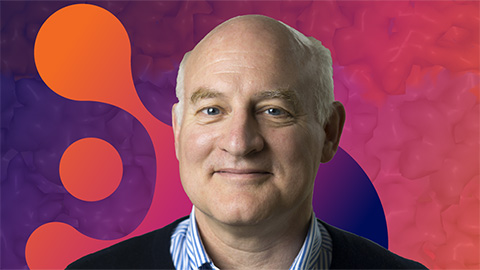
Building the blueprint to block HIV
Wesley Sundquist will present his work on the HIV capsid and revolutionary drug, Lenacapavir, at the ASBMB Annual Meeting, March 7–10, in Maryland.
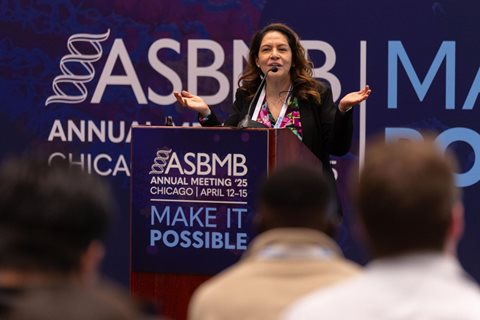
Upcoming opportunities
Present your research alongside other outstanding scientists. The #ASBMB26 late-breaking abstract deadline is Jan. 15.
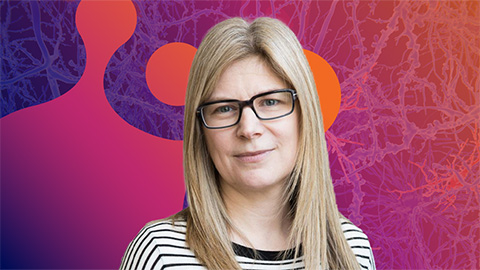
Designing life’s building blocks with AI
Tanja Kortemme, a professor at the University of California, San Francisco, will discuss her research using computational biology to engineer proteins at the 2026 ASBMB Annual Meeting.

Upcoming opportunities
#ASBMB26 late-breaking abstract submission opens on December 8. Register by Jan. 15 to get the early rate on our Annual Meeting.

Make your abstract stand out
Ensure your research is impossible to overlook. Get quick, practical reminders for crafting an abstract that attracts readers and helps you build connections at the conference.
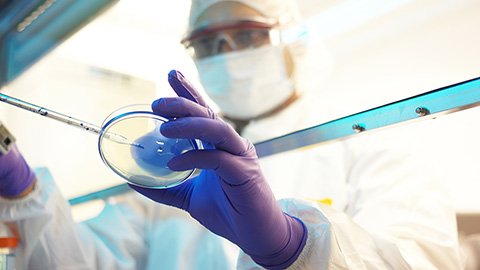
Inside industry postdocs
As more Ph.D. scientists look beyond academia, industry postdocs offer a new kind of training, where mentorship meets mission-driven research. Fellows at Pfizer and Genentech share how these programs prepare them to translate discovery into impact.

